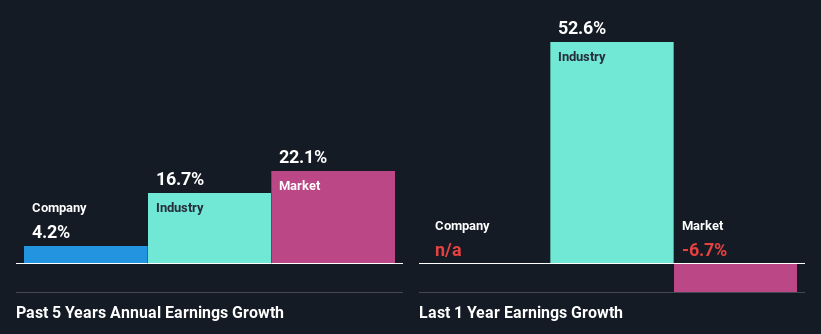Thermal Energy International Inc.'s (CVE:TMG) Stock Is Going Strong: Have Financials A Role To Play?
Thermal Energy International (CVE:TMG) has had a great run on the share market with its stock up by a significant 35% over the last three months. We wonder if and what role the company's financials play in that price change as a company's long-term fundamentals usually dictate market outcomes. Particularly, we will be paying attention to Thermal Energy International's ROE today.
Return on Equity or ROE is a test of how effectively a company is growing its value and managing investors’ money. In simpler terms, it measures the profitability of a company in relation to shareholder's equity.
View our latest analysis for Thermal Energy International
How To Calculate Return On Equity?
ROE can be calculated by using the formula:
Return on Equity = Net Profit (from continuing operations) ÷ Shareholders' Equity
So, based on the above formula, the ROE for Thermal Energy International is:
73% = CA$2.1m ÷ CA$3.0m (Based on the trailing twelve months to November 2023).
The 'return' refers to a company's earnings over the last year. So, this means that for every CA$1 of its shareholder's investments, the company generates a profit of CA$0.73.
Why Is ROE Important For Earnings Growth?
Thus far, we have learned that ROE measures how efficiently a company is generating its profits. Depending on how much of these profits the company reinvests or "retains", and how effectively it does so, we are then able to assess a company’s earnings growth potential. Assuming all else is equal, companies that have both a higher return on equity and higher profit retention are usually the ones that have a higher growth rate when compared to companies that don't have the same features.
A Side By Side comparison of Thermal Energy International's Earnings Growth And 73% ROE
Firstly, we acknowledge that Thermal Energy International has a significantly high ROE. Second, a comparison with the average ROE reported by the industry of 14% also doesn't go unnoticed by us. Yet, Thermal Energy International has posted measly growth of 4.2% over the past five years. This is generally not the case as when a company has a high rate of return it should usually also have a high earnings growth rate. We reckon that a low growth, when returns are quite high could be the result of certain circumstances like low earnings retention or or poor allocation of capital.
As a next step, we compared Thermal Energy International's net income growth with the industry and were disappointed to see that the company's growth is lower than the industry average growth of 17% in the same period.
Earnings growth is a huge factor in stock valuation. The investor should try to establish if the expected growth or decline in earnings, whichever the case may be, is priced in. By doing so, they will have an idea if the stock is headed into clear blue waters or if swampy waters await. One good indicator of expected earnings growth is the P/E ratio which determines the price the market is willing to pay for a stock based on its earnings prospects. So, you may want to check if Thermal Energy International is trading on a high P/E or a low P/E, relative to its industry.
Is Thermal Energy International Efficiently Re-investing Its Profits?
Thermal Energy International doesn't pay any dividend, meaning that potentially all of its profits are being reinvested in the business. However, there's only been very little earnings growth to show for it. So there could be some other explanation in that regard. For instance, the company's business may be deteriorating.
Summary
On the whole, we do feel that Thermal Energy International has some positive attributes. Although, we are disappointed to see a lack of growth in earnings even in spite of a high ROE and and a high reinvestment rate. We believe that there might be some outside factors that could be having a negative impact on the business. While we won't completely dismiss the company, what we would do, is try to ascertain how risky the business is to make a more informed decision around the company. Our risks dashboard would have the 4 risks we have identified for Thermal Energy International.
Have feedback on this article? Concerned about the content? Get in touch with us directly. Alternatively, email editorial-team (at) simplywallst.com.
This article by Simply Wall St is general in nature. We provide commentary based on historical data and analyst forecasts only using an unbiased methodology and our articles are not intended to be financial advice. It does not constitute a recommendation to buy or sell any stock, and does not take account of your objectives, or your financial situation. We aim to bring you long-term focused analysis driven by fundamental data. Note that our analysis may not factor in the latest price-sensitive company announcements or qualitative material. Simply Wall St has no position in any stocks mentioned.

 Yahoo Finance
Yahoo Finance 
